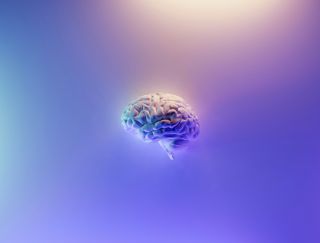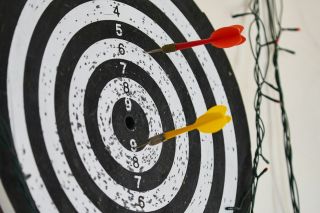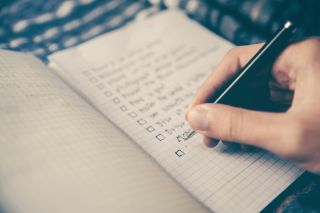Locus of Control
Locus of Control: Who Has Power Over What Happens to Us?
Psychology encourages an internal locus of control.
Posted July 14, 2024 Reviewed by Lybi Ma
Key points
- People with internal loci of control believe they have control over what happens to them.
- An external locus of control is thought to lead to problems like learned helplessness.
- At least some degree of an external locus of control may be more realistic and healthy.
In psychology, it’s almost universally accepted that we want people to have an internal locus of control. The alternative? An external locus of control.

What is the locus of control?
A person’s locus of control essentially speaks to who or what has power over their lives. Some textbooks I use in my psychology classes explain it as one’s belief about how much control they have over outcomes. Others explain it as what we believe causes events in our lives.
I ask, “How much control do you have over what happens to you?”
When put that way, it becomes clear why psychology favors an internal locus of control. We want the answer to the above question to be, “Me. I have control over what happens to me.”
Why do we like internal locus of control?
What occurs when we think we don’t have control over our lives and what happens to us? Do other people, the universe, luck, or anything else determine those outcomes? Learned helplessness is the idea that we give up and learn to be helpless if we think we don’t have power over what happens to us.
“I just can’t be a good parent no matter how hard I try. I am going to stop trying.”
Well yeah, that doesn’t sound good. We want people to work towards their goals. We want people to have a strong sense of self-efficacy: the ability to achieve. If everything that happens to you is the result of someone or something else, then what is the point?
An internal locus of control benefits mental health and drives goal-directed behavior, but is it always helpful?

Does an external locus of control have any merit?
There are external forces that affect our lives and experiences. It doesn’t do anyone any good to pretend we have complete and total control over what happens to us. If we’re too zealous— if we’re not realistic—internal locus of control, we may do more harm than good.
At best, we are unrealistic about larger forces that contribute to outcomes.
At worst, we facilitate victim-blaming.
Why does the defeatist parent feel like they can’t be a good parent, no matter how hard they try? The why matters. Are we talking about parenting mistakes that everyone makes or something like being targeted by systemic racism and egregious reports to child protective services?
That may be a dramatic example, but when people face any ism, an internal locus of control isn’t going to help there. It won’t help the individual (“this is my fault”) and it doesn’t help us as a society and as communities work to prevent those external factors that do lead to outcomes. In this case, injustice.
When does an internal locus of control become problematic?
Of course, an internal locus of control is not a bad thing. It can become a bad thing without a healthy dose of reality. Wanting control over things we simply cannot control is a hallmark of anxiety.
I sometimes encourage students to look for external factors to explain the outcomes and events in their lives. To me, it’s the only healthy approach.
The student who, for example, got a bad grade on the test might have other things going on in their life that contributed to that result. In my experience, that student far too often settles on the idea that they are just a bad student—period, the end. That’s not helpful.
What is out of our control?
Some clinicians suggest that locus of control, while a cognitive concept, is more about how we react to, rather than explain, what happens to us. In a way, it’s behavioral. “We can’t choose what someone says to us, but we can choose how we respond” people.
At the same time, we should probably not give ourselves too much credit here. Again, anxiety and psychological discomfort often arise from attempts to control the uncontrollable. And while this may be unpopular, some things are objectively out of our control.
Some people should be more responsible for difficulties (like racism) than others. We can’t and shouldn’t all have a strong internal locus of control about everything.

How do we examine our locus of control?
Locus of control comes from personality psychology, though it has been adopted by clinical psychology and many other subfields. These days, even if they don’t use the term, many clinicians embrace it.
As those clinicians would likely argue, we should examine our locus of control. Who and what do we think is in charge of our lives? Who and what do we tend to attribute outcomes to? How much control do we have?
As we ponder this, let’s also throw in a healthy dose of reality. Maybe a little bit of an external foci isn’t a bad thing.




